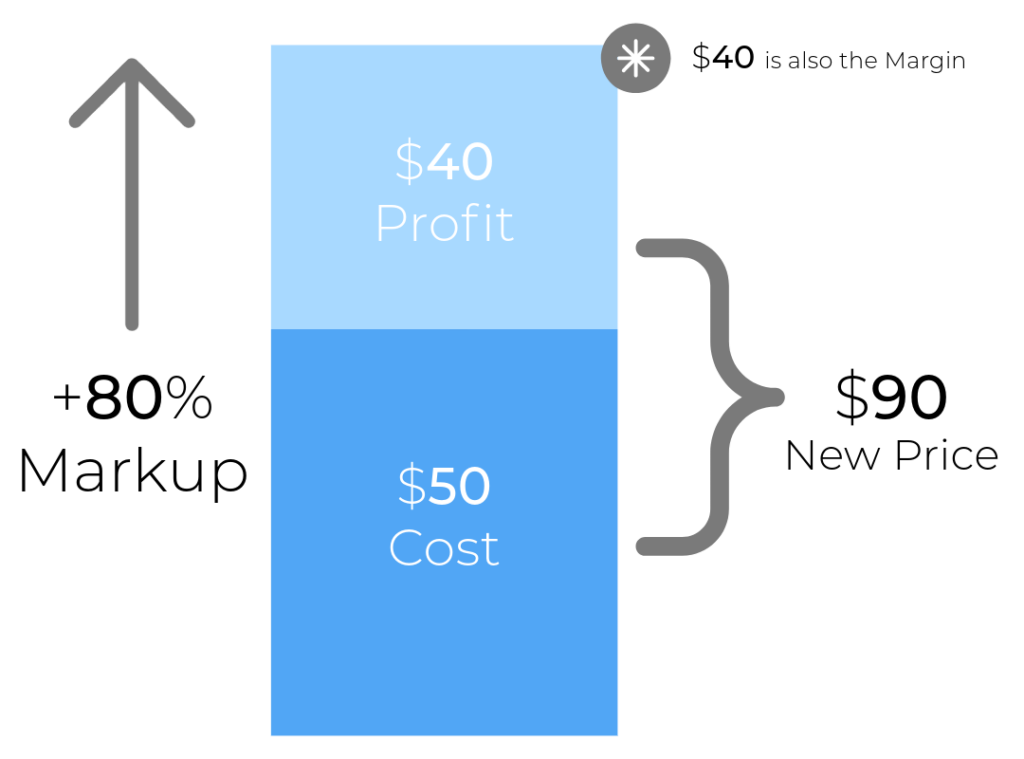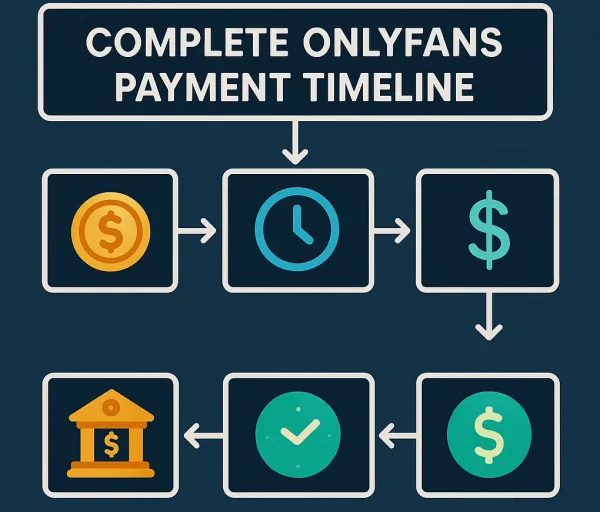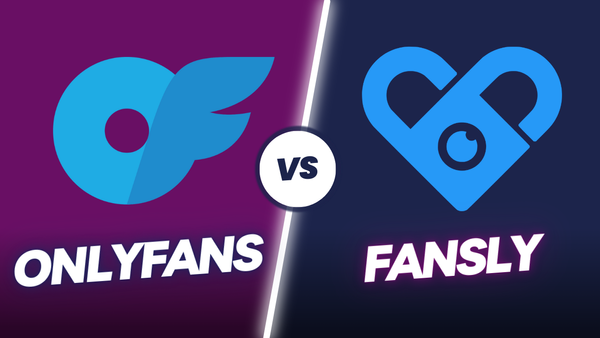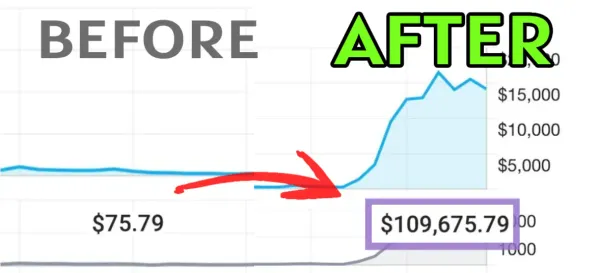Deceptive Tactics Used in Crooked OnlyFans Agency Contracts

OnlyFans management contracts are agreements between content creators and agencies that outline commission structures, content ownership, exclusivity terms, and payment arrangements. As the platform continues to grow, more creators are considering working with OnlyFans management agencies—but not all contracts are created equal, and some contain serious red flags that could impact your earnings, creative freedom, and long-term career.
Definition Box: OnlyFans management contracts are formal agreements between content creators and management agencies that establish the business relationship, outlining what services the agency will provide and what the creator is responsible for. These contracts typically cover commission rates, content ownership, platform exclusivity, performance expectations, and payment terms.
Red Flags Checklist: What to Watch For Before Signing
Before diving into the details, here's a quick overview of the major warning signs to look for in any OnlyFans management contract:
- Commission rates exceeding 20-30% without exceptional services
- Ownership claims on your original content
- Exclusivity clauses preventing work on other platforms
- Contract terms longer than 12 months without clear benefits
- Vague performance requirements with harsh penalties
- Hidden fees buried in complex language
- Restrictive intellectual property clauses
- Delayed or complicated payment structures
Now let's examine each of these areas in detail so you can protect your business and creative rights.
OnlyFans Agency Contracts with Problematic Commission Structures
What Percentage Should OnlyFans Management Agencies Take?
Industry standard OnlyFans management commissions typically range from 10-20%, while problematic contracts often demand 30-50% or more. The percentage should reflect the actual value and services provided by the agency.
| Service Category | Industry Standard Rate | Red Flag Rate |
|---|---|---|
| Basic management (profile setup, support) | 10-15% | Over 20% |
| Standard management (includes promotion) | 15-20% | Over 30% |
| Premium management (full service, high-touch) | 20-25% | Over 35% |
| Content creation assistance | Additional 5-10% | Bundled without specification |
| Specialized marketing campaigns | Project-based fees | Open-ended percentage |
| Platform management only | 10-15% | Over 20% |
| Full-service career management | 20-30% | Over 40% |
Contract Review Tip: Always make sure the commission rate directly correlates with specific, clearly defined services. Higher rates should come with demonstrably higher value.
Sliding Scale Commissions That Never Benefit Creators
Some contracts feature sliding scale commissions that appear to reward success but actually penalize it. For example, a contract might state that the agency takes 20% of the first $5,000 earned monthly, then "reduces" to 15% for earnings between $5,000-$10,000, but then jumps to 25% for all earnings above $10,000.

This structure creates an illusion of benefit while actually taking more money from your highest earning months. A fair sliding scale should decrease as earnings increase, not introduce new higher tiers.
Commissions on Gross Earnings Instead of Net Revenue
When agencies calculate commissions on gross earnings rather than net revenue, you lose significantly more money than you might realize.
Numerical Example:
- Monthly gross earnings: $10,000
- Platform fee (20%): $2,000
- Net revenue before agency commission: $8,000
Commission on net revenue (20%): $1,600 Commission on gross revenue (20%): $2,000
Difference: $400 per month or $4,800 per year in additional fees
This calculation method means you're essentially paying commission on OnlyFans' cut, which you never actually receive.
Hidden Charges Disguised Within Commission Calculations
Watch for these common hidden charges that may be buried in commission structures:
- "Administrative processing fees" (2-5% additional)
- "Platform integration fees" (flat monthly fee)
- "Analytics access surcharges" (subscription-based)
- "Priority support fees" (tiered rates for response times)
- "Cross-platform management fees" (for mentions on other social media)
- "Content scheduling surcharges" (per post or monthly)
- "Subscriber communication fees" (per message or monthly)
- "Payout processing fees" (percentage of each payout)
Contract Review Tip: Request a complete breakdown of ALL fees before signing. Ask specifically: "Are there any other fees or charges not included in the commission percentage?"
Commissions on Tips and Gifts From Subscribers
Case Study: Maya's Surprise Deduction
Maya, an OnlyFans creator with 600 subscribers, was shocked when her agency took 30% of the $2,300 in tips she received for her birthday. Her contract's fine print stated that "all platform revenue" was subject to commission, which the agency interpreted to include direct tips and gifts.
"I'd assumed tips were separate since they're personal gifts from my fans," Maya explained. "I lost almost $700 from what I thought would be entirely mine."
What to negotiate instead: A contract that explicitly excludes tips and gifts from commission calculations, or at minimum, implements a lower commission rate (5-10%) for these personal contributions from fans.
Post-Termination Commission Claims on Future Earnings
One of the most problematic clauses appearing in recent OnlyFans management contracts is the post-termination commission claim.
"These clauses essentially allow agencies to collect commissions on earnings that occur after the contract has ended, sometimes for years," explains Jordan Reynolds, an entertainment lawyer specializing in digital content contracts. "This creates a situation where creators remain financially tied to former management without receiving any ongoing services."
Look for language referring to "subscribers acquired during the contract period" or "residual commission rights." Some contracts claim rights to earnings from any subscribers who joined during the contract term, even if you've since moved on.
Different Rates for Different Content Types Without Justification
| Content Type | Typical Fair Structure | Problematic Structure |
|---|---|---|
| Standard photos | 15-20% commission | 20-25% commission |
| Video content | 15-20% commission | 25-30% commission |
| Live streams | 15-20% commission | 30-35% commission |
| Personalized content | 10-15% commission | 25-40% commission |
| Messaging/chat | No additional commission | 25% separate commission |
| Subscription price | Standard commission | Higher rate for higher prices |
| Special offers/promotions | Reduced commission | Increased commission |
There's rarely justification for drastically different commission rates across content types, especially when the agency's workload doesn't significantly change.
Commission Structures Without Caps for High-Earning Creators
For high-earning creators, uncapped commissions can become extremely problematic.
Numerical Example:
- Creator earning $50,000/month
- 20% commission = $10,000/month to agency
- 25% commission = $12,500/month to agency
- Difference: $2,500/month or $30,000/year
At these earning levels, there should be commission caps or declining percentage tiers that acknowledge diminishing agency effort relative to income. For example, a fair structure might cap commissions at $8,000-$10,000 monthly, regardless of earnings, or reduce the percentage for earnings above certain thresholds.
Exclusivity Clauses That Limit Your Creative Freedom
Platform Restrictions Preventing Work on Competing Sites
Red Flag Language Checklist:
□ "Creator agrees to maintain exclusive presence on OnlyFans platform"
□ "Creator shall not operate, maintain or contribute to any competing platform"
□ "Exclusivity extends to all adult content membership platforms"
□ Vague definition of "competing platforms"
□ No compensation for exclusivity
□ No exceptions for existing accounts
□ No provisions for platform policy changes
□ Extends beyond contract termination
Fair contracts should either avoid platform exclusivity altogether or provide specific additional compensation for platform restrictions.
Non-Compete Clauses Extending Beyond Contract Termination
Non-compete clauses that extend beyond the contract period can severely limit your future opportunities.
"In most creator contracts, post-termination non-competes longer than 3-6 months are generally considered excessive," says Dana Berkowitz, contract attorney specializing in digital media. "These clauses are particularly problematic in the creator economy where career momentum is crucial and platforms evolve rapidly."
Be particularly wary of non-competes that:
- Extend beyond 6 months after termination
- Cover overly broad geographic areas
- Prevent work with a wide range of competitors
- Lack compensation for the restriction period
In many states, overly restrictive non-competes may be unenforceable, but fighting them legally can be costly and time-consuming.
Collaboration Restrictions With Other Creators or Brands
Case Study: Alex's Collaboration Roadblock
Alex had built relationships with several other creators and planned collaborative content that would benefit everyone involved. After signing with an agency, Alex discovered their contract prohibited collaborations without agency approval and required a 40% commission on all collaborative projects—even with creators not represented by the agency.
"The restrictions essentially killed all my collaboration opportunities," Alex shared. "Potential collaborators didn't want to work with me because of the complicated approval process and higher revenue share my agency demanded."
When negotiating, ensure your contract allows collaboration flexibility with reasonable notice requirements rather than strict approval processes.
Content Type Limitations Restricting Creative Expression
Some management contracts include restrictive language about content types that can limit your creative freedom and brand development. Watch for:
- Prohibitions on certain content categories without clear reasoning
- Requirements to produce specific content types regardless of your comfort level
- Restrictions on exploring new content formats
- Mandates to maintain certain aesthetic standards
- Limitations on experimenting with pricing or offer structures
- Requirements for approval before trying new content directions
- Restrictions that seem focused on making management easier rather than growing your brand
- Prohibitions that limit crossover to mainstream platforms
Contract Review Tip: Your contract should support your creative vision, not restrict it. Any content limitations should be minimal and clearly justified.
Geographic Exclusivity Affecting In-Person Events and Activities
Geographic restrictions can severely limit your ability to participate in events, meetups, and other in-person opportunities.
The most problematic restrictions include:
- Broad regional or national exclusivity without specific events
- Requirements for agency approval for any public appearance
- High commission rates on appearance fees (over 20%)
- Restrictions on appearing at events where other creators will be present
- Limitations on travel without agency notification or approval
Cross-Platform Content Repurposing Restrictions
| Content Type | Fair Contract Terms | Problematic Contract Terms |
|---|---|---|
| Photos | Can repurpose on other platforms with credit | Cannot use on other platforms |
| Videos | Can use clips/previews on other platforms | Agency owns all rights to repurpose |
| Livestreams | Can create highlights for other platforms | Agency controls all derivative content |
| Text/captions | Creator maintains rights to reuse | Agency claims ownership of all writing |
| Personal brand elements | Creator maintains full ownership | Agency controls use across platforms |
| Behind-the-scenes content | Creator can use freely | Requires agency approval |
| Tutorials/educational content | Creator can repurpose | Considered "work for hire" |
| Promotional materials | Shared usage rights | Agency exclusive control |
Cross-platform visibility is crucial for growth. Ensure your contract allows you to maintain consistent branding and content strategy across different platforms.
Personal Social Media Usage Limitations and Controls
Follow these steps to protect your social media independence:
- Carefully review contract language about "promotional channels" and "marketing platforms"
- Reject clauses requiring agency approval for personal social media posts
- Maintain separate passwords and access controls for all accounts
- Explicitly define which platforms fall under management and which remain personal
- Ensure contract specifies you maintain ownership of all social accounts
- Negotiate clear termination procedures for any accounts the agency helps manage
- Reject any requirements to promote agency-related content on personal channels
- Document your pre-contract follower counts and engagement metrics
Contract Review Tip: A reasonable agency might request notification about major branding changes but should never demand approval rights for your personal social media accounts.
Media Appearance and Interview Approval Requirements
Media appearances, interviews, and press opportunities can significantly boost your visibility and career prospects, but excessive restrictions can hinder these opportunities.
"Creators should maintain reasonable autonomy over their media presence," advises Taylor Morgan, digital media publicist. "While agencies can provide valuable guidance, approval requirements often lead to missed opportunities due to delayed responses or overly conservative approaches to media."
The most problematic clauses require approval for any media mention whatsoever, impose high commissions on media appearance fees, or grant the agency exclusive right to arrange all media opportunities (even those you generate yourself).
Unfair Content Ownership Terms to Watch For
Who Owns Content Created Under Management Contracts?
By default, content creators should own their original content, but problematic OnlyFans management contracts often include clauses transferring ownership to the agency. This fundamental right affects your long-term revenue potential and creative control.
Red Flag Contract Language Checklist:
□ "All content created during the contract term shall be owned exclusively by Agency"
□ "Creator hereby assigns all rights, title and interest in the Content to Agency"
□ "Works created shall be considered works made for hire"
□ Language granting "exclusive and perpetual license" to the agency
□ Failure to distinguish between content you create and content the agency helps produce
□ No reversion of rights upon contract termination
□ Ownership claims extended to your pre-existing content
□ No separate compensation for transfer of ownership rights
Perpetual Content Licensing Rights Without Additional Compensation
Case Study: Jamie's Licensing Surprise
Jamie signed with an agency that took a standard 20% commission. Two years after their contract ended, they discovered the agency was still selling and licensing their content to third-party sites.
"The contract had a clause granting them 'perpetual, worldwide rights to license the content,'" Jamie explained. "I was shocked to find my content on sites I'd never approved and wasn't seeing a penny from those deals."
The perpetual licensing clause meant the agency could continue profiting from Jamie's content indefinitely without providing any ongoing services or compensation.
Fair contracts should limit licensing rights to the contract term plus a reasonable wind-down period, or specify additional compensation for extended licensing.
Continued Content Usage After Contract Termination
Watch for these problematic post-termination content usage scenarios:
- Agency continues to distribute your content without ongoing compensation
- Content remains on platforms you no longer wish to be associated with
- Agency can edit or modify your content without approval
- Your content is used to promote other creators
- Agency can bundle your content into packages or compilations
- No obligation to remove content upon request
- No transparency about where content is being used
- Content usage without proper attribution
Contract Review Tip: Specify that all content usage rights expire within 30 days of contract termination, with clear exceptions for any agreed-upon extended uses with compensation terms.
Content Repurposing Without Creator Approval or Attribution
Content repurposing can be beneficial when done collaboratively, but becomes problematic when agencies have unilateral rights to:
- Edit your content without approval
- Remove your branding or watermarks
- Combine your content with other creators' work
- Repurpose content for marketing the agency rather than you
- Create derivative works without additional compensation
- Use your content in contexts that might damage your brand
- Fail to properly attribute the content to you as creator
Retroactive Rights Claims on Pre-Contract Content
"Retroactive rights claims on content created before the management relationship began are not only ethically questionable but potentially legally unenforceable," explains Morgan Williams, intellectual property attorney. "These clauses attempt to claim ownership or control over assets that were created entirely independently of the agency relationship."
Be extremely cautious of any language referring to "previous works," "existing content," or "prior materials." The contract should explicitly state that any content created before the contract term remains 100% your property with no agency rights or claims.
Unclear Content Archiving and Deletion Policies
| Aspect | Clear, Fair Policy | Problematic Policy |
|---|---|---|
| Content storage | Specific secure storage methods detailed | Vague references to "standard industry practices" |
| Deletion timeline | Specific timeline for removing content after request | No guarantee of deletion or unreasonable timeframes |
| Archiving rights | Limited, specific archiving for legal/record purposes | Broad archiving rights for unspecified future use |
| Creator access | Guaranteed access to all content archives | No guaranteed access to archived content |
| Third-party sharing | Requires explicit permission for each instance | Broad rights to share with "partners" or "affiliates" |
| Content backup | Reasonable backup procedures | No commitment to maintaining content security |
| Post-termination | Clear process for content handling after contract ends | No specified post-termination content procedures |
| Verification | Process for verifying deletion upon request | No verification process offered |
Contract Review Tip: The contract should include specific timeframes for content removal upon request (generally 24-72 hours) and clear processes for verifying deletion.
Ownership Claims on Collaborative Work With Other Creators
Follow these steps to protect your rights in collaborations:
- Ensure your management contract explicitly addresses collaboration ownership
- Create separate agreements with collaborators before shooting content
- Specify the revenue share and usage rights for each collaborator
- Document your specific contributions to the collaborative work
- Retain co-ownership rights of collaborative content in writing
- Secure approval rights for how collaborative content is used
- Establish clear parameters for how agencies can represent collaborative work
- Create a communication protocol for handling collaboration-related issues
The strongest contracts specify that collaborative content is jointly owned by the creators involved, with the agency only having rights to their standard commission on your portion of revenue.
Rights to Derivative Works and Spin-Off Content Projects
Be alert to clauses claiming ownership or control over derivative works, which might include:
- Merchandise featuring your likeness or content
- Publications derived from your content or personal brand
- Adaptations of your content for other media formats
- Educational materials based on your expertise
- Product lines inspired by your content or persona
- Fan clubs or membership programs beyond the platform
- Books, e-books, or guides related to your content
- Appearances, speaking engagements, or workshops
- Web series or shows featuring your personality or content
- Social media or web properties based on your brand
Contract Review Tip: Insist on clear language that limits agency rights specifically to managing the original content on the specified platforms, with any derivative projects requiring separate agreements.
Unreasonable Contract Duration and Termination Penalties
How Long Should an OnlyFans Management Contract Last?
A fair OnlyFans management contract typically lasts 6-12 months with option to renew, while problematic contracts often lock creators in for 2+ years with difficult exit options. Your first contract with any agency should be relatively short to ensure compatibility before committing long-term.
| Contract Element | Industry Standard | Red Flag |
|---|---|---|
| Initial term | 6-12 months | 24+ months |
| Renewal mechanism | Explicit renewal required | Automatic renewal without notice |
| Probation period | 30-90 day trial period | No trial or exit option |
| Notice for non-renewal | 30 days | 60+ days or no clear process |
| Early termination | Possible with notice (30-60 days) | Not permitted or excessive penalties |
| Performance review | Regular intervals with exit options | No performance evaluation process |
| Extension terms | Same or better terms than initial | Less favorable terms for extension |
| Maximum commitment | 12 months at a time | Multi-year with no review points |
Automatic Renewal Clauses Without Prior Notification
![]()
Automatic renewal clauses become problematic when they:
- Renew for periods longer than the original term
- Don't require notification before renewal
- Have extremely early cancellation deadlines (90+ days before term ends)
- Include increasing commission rates or less favorable terms upon renewal
- Make the cancellation process unnecessarily complex
- Hide renewal terms in contract fine print
- Renew despite agency performance issues
Contract Review Tip: Insist on a clause requiring written notification at least 30 days before any automatic renewal, with a simple email response sufficient to prevent renewal.
One-Sided Termination Rights Favoring Only the Agency
Red Flag Termination Clause Language:
□ Agency can terminate "at its sole discretion" while creator cannot
□ Agency can terminate "for any reason" while creator needs specific cause
□ Agency can terminate with shorter notice than creator (e.g., 7 days vs. 30 days)
□ Termination by agency doesn't end commission obligations
□ Agency can terminate for vague "reputation" concerns
□ Creator termination requires payment of remaining contract value
□ Creator must continue working through lengthy notice periods
□ No creator termination rights for agency non-performance
Fair contracts should have balanced termination rights with equivalent notice periods and clear, reciprocal conditions for termination.
Excessive Financial Penalties for Early Contract Termination
Early termination penalties should be reasonable and proportionate, not punitive.
Numerical Example:
- 12-month contract with 20% commission
- Average monthly earnings: $5,000
- Agency monthly commission: $1,000
- Reasonable early termination fee: 1-2 months commission ($1,000-$2,000)
- Problematic termination fee: Full remaining contract value ($1,000 × remaining months)
Terminating a contract with 6 months remaining could cost:
- Reasonable penalty: $1,000-$2,000
- Excessive penalty: $6,000+
Some contracts even add additional penalties or "damages" claims beyond the lost commission.
Vague Termination Conditions Based on Subjective Criteria
Be wary of termination clauses that rely on subjective assessments, including:
- "Failure to maintain professional standards" without defining those standards
- "Conduct detrimental to the agency's reputation" without specific examples
- "Inadequate engagement with fans" without defining metrics
- "Failure to align with agency values" without clear definition
- "Unsatisfactory performance" without objective measurement criteria
- "Lack of cooperation" without specific requirements
- "Creative differences" as determined solely by the agency
- "Failure to maintain quality standards" without defined parameters
Contract Review Tip: All termination conditions should be based on objective, measurable criteria that both parties can clearly understand and verify.
Notice Period Imbalances Between Creator and Agency
| Notice Aspect | Fair Structure | Problematic Structure |
|---|---|---|
| Length of notice | Equal for both parties | Longer for creator than agency |
| Working requirements | Similar obligations during notice | Creator must work fully while agency can reduce services |
| Commission during notice | Standard rates continue | Increased rates during creator's notice period |
| Exit timeline options | Flexible with mutual agreement | Rigid regardless of circumstances |
| Notice delivery method | Reasonable methods (email, etc.) | Restrictive methods (certified mail only, etc.) |
| Acknowledgment requirements | Simple confirmation | Complex acceptance process |
| Impact on final payments | No delay of final payments | Withheld payments during notice period |
| Performance expectations | Clearly defined | Increased or vague during notice period |
Notice periods should be mutual and reasonable, typically 14-30 days for standard management relationships.
Post-Termination Restrictions on Future Work Opportunities
Case Study: Taylor's Career Limitations
Taylor terminated their contract with an agency after discovering several misleading promises about marketing support. Six months later, they received a cease and desist letter claiming their new content strategy violated post-termination restrictions.
"The contract had a clause preventing me from using 'content concepts, themes, or strategies similar to those developed during the contract period' for two years after termination," Taylor explained. "Essentially, they claimed to own the concept of my content style, not just specific content."
Taylor had to hire a lawyer to fight these claims and ultimately had to rebrand significantly to avoid legal issues, losing momentum and subscribers in the process.
Are OnlyFans Management Contracts Legally Enforceable?
"OnlyFans management contracts are generally legally enforceable, but with significant caveats," explains Samantha Chen, digital entertainment attorney. "Courts may not enforce provisions that are overly restrictive, unconscionable, or that violate public policy. Particularly problematic are excessive non-competes, unreasonable exclusivity requirements, and punitive termination penalties."
The enforceability often depends on:
- Your jurisdiction (laws vary by state and country)
- The specific terms and how they're written
- Whether the terms are reasonable for the industry
- How the contract was presented and signed
- Whether both parties had equal bargaining power
Even if certain clauses might not hold up in court, fighting them legally can be expensive and time-consuming—making prevention through careful review the best approach.
Vague Performance Metrics That Put Creators at Risk
Undefined Satisfactory Performance Requirements
| Performance Aspect | Clear, Fair Metric | Vague, Problematic Metric |
|---|---|---|
| Content quantity | "Minimum 15 posts monthly" | "Regular content updates" |
| Engagement | "Respond to 80% of messages within 24 hours" | "Maintain adequate fan engagement" |
| Growth targets | "10% subscriber growth quarterly with joint marketing plan" | "Continuous growth in subscriber base" |
| Quality standards | "HD video, good lighting, clear audio" | "Professional quality content" |
| Promotional activity | "3 promotional posts weekly on Instagram" | "Consistent cross-platform promotion" |
| Revenue goals | "Jointly established quarterly revenue targets" | "Satisfactory earnings performance" |
| Availability | "24-hour response time to agency communications" | "Maintain reasonable availability" |
| Platform compliance | "Adhere to OnlyFans Terms of Service" | "Ensure content meets platform standards" |
Contract Review Tip: Every performance metric should answer the questions: How much? How often? By when? Measured how? With what tools or methods?
Arbitrary Subscriber Growth Targets Without Market Context
Unrealistic growth targets fail to account for:
- Platform algorithm changes
- Market saturation in your content niche
- Seasonal fluctuations in subscriber behavior
- Broader economic factors affecting discretionary spending
- Changes in platform policies or payment processing
- Competitive landscape shifts
- Content lifecycle and subscriber retention patterns
Fair contracts should include context-sensitive targets developed collaboratively, with provisions for adjustment based on market conditions beyond your control.
Unrealistic Content Production Quotas and Schedules
Case Study: Jordan's Burnout Experience
Jordan signed with an agency that required "minimum content production of 40 unique posts monthly, including at least 10 videos of 10+ minutes." After three months, Jordan was experiencing severe burnout and declining content quality.
"I was so focused on hitting the quotas that my creativity suffered," Jordan shared. "When I couldn't meet the requirements due to a family emergency, the agency cited breach of contract and threatened to withhold payments."
The contract lacked any provisions for illness, emergencies, or reasonable adjustments to production schedules—treating the creator more like a production facility than a creative professional.
Subjective Content Quality Assessment Standards
Beware of quality standards based on subjective judgments rather than clear criteria:
- "Content must meet agency's professional standards"
- "Agency reserves right to request revisions based on quality concerns"
- "Content must maintain audience satisfaction" without defining measurement
- "Agency may reject content deemed unsuitable" without specific guidelines
- "Content must align with agency's brand vision"
- "Performance will be evaluated based on content quality"
- "Creator must maintain competitive quality standards"
- "Content below acceptable quality may trigger contract remedies"
Contract Review Tip: Quality requirements should focus on objective elements like resolution, lighting, sound quality, and file format—not subjective aesthetic judgments.
Moving Performance Goalposts Without Prior Notice
"One of the most problematic practices we see is the shifting of performance expectations mid-contract without proper notification or agreement," notes Jamie Rodriguez, creator advocate and former agency manager. "This creates an environment where creators can never feel secure in their compliance with contract terms."
Performance expectations should be clearly documented in the original contract, with any changes requiring mutual written agreement. Watch for language giving the agency unilateral rights to "update," "adjust," or "modify" performance requirements during the contract term.
Penalties Tied to Metrics Outside Creator Control
Red Flag Penalty Clause Checklist:
□ Penalties for subscriber losses during platform-wide downturns
□ Financial consequences for engagement drops following algorithm changes
□ Requirements to maintain specific positions in platform search rankings
□ Penalties for revenue decreases during seasonal fluctuations
□ Consequences for failing to achieve growth during platform policy changes
□ Reduced services for missing targets without agency marketing support
□ Increased commission rates when certain metrics aren't achieved
□ Automatic contract remedies triggered by metrics without creator input
Fair contracts should include force majeure clauses that recognize factors beyond creator control and provide reasonable accommodation.
Failure to Consider Platform Algorithm and Policy Changes
Follow these steps to protect yourself from algorithm-related penalties:
- Document the current algorithm environment at contract signing
- Include clause acknowledging platform changes beyond creator control
- Require periodic review of performance metrics following major platform updates
- Negotiate amendment rights when platform changes impact content visibility
- Establish communication protocol for reporting platform changes
- Include exemptions from growth targets during algorithm adjustment periods
- Add language requiring agency to stay informed about platform developments
- Establish good faith adjustment process for metrics following significant changes
Contract Review Tip: Include specific language stating that "performance metrics shall be reassessed following any significant platform algorithm or policy change that impacts content visibility or monetization."
Performance Comparisons to Unrelated Creators or Markets
| Comparison Aspect | Fair Practices | Unfair Practices |
|---|---|---|
| Creator selection | Comparable niche, experience level | Arbitrary creators regardless of relevance |
| Metric focus | Similar measurements across comparisons | Different metrics for different comparisons |
| Timeframe | Same measurement period for all | Cherry-picked timeframes |
| Market factors | Considers platform changes equally | Ignores platform impacts selectively |
| Transparency | Access to comparison data | Hidden or limited access to comparison data |
| Methodology | Clear explanation of comparison methods | Unclear how comparisons are conducted |
| Frequency | Regular, scheduled comparisons | Random comparisons when convenient |
| Application | Informational and developmental | Punitive and contract-threatening |
Comparisons should be educational and growth-oriented, not used as contract compliance tools.
Hidden Fee Structures Buried in Fine Print
Marketing and Promotion Fees Presented as Mandatory Services
Numerical Example: Base contract: 20% commission on $5,000 monthly revenue = $1,000/month Hidden marketing fees:
- "Standard promotion package": $250/month
- "Social media boosting": $150/month
- "Cross-platform promotion": $200/month
- "SEO optimization": $100/month
Total monthly fees: $1,700 ($1,000 commission + $700 marketing) Effective commission rate: 34% (not the 20% advertised)
Annual impact: $8,400 in additional fees beyond the stated commission
Contract Review Tip: Clarify whether marketing services are included in the base commission or represent additional costs. If additional, these should be optional, not mandatory, with clear performance metrics.
Administrative Fees Beyond Basic Management Services
| Service Category | Typically Included in Base Commission | Problematic Additional Charges |
|---|---|---|
| Account setup and maintenance | Included | $100-500 setup fee |
| Basic profile optimization | Included | $50-200 per update |
| Subscriber message management | Included | Per-message fees or hourly rates |
| Content scheduling | Included | Per-post scheduling fees |
| Payment processing | Included | Additional % of each payout |
| Basic reporting | Included | Report access fees |
| Tax documentation | Included | Form preparation fees |
| Standard customer service | Included | Tiered support packages |
| Platform compliance | Included | Compliance review fees |
| Basic security measures | Included | "Enhanced security" charges |
Any service fundamental to basic account management should be included in the standard commission structure. Additional fees should only apply to genuinely premium or specialized services.
Content Review and Approval Charges per Submission
Case Study: Riley's Mounting Review Fees
Riley was surprised when their first earnings statement showed multiple content review charges. The contract's fine print included a $5 fee for each photo set review and $15 for each video review.
"With my posting schedule of 20 photo sets and 8 videos monthly, I was paying $220 just in review fees," Riley explained. "When I asked about it, they said it was for 'quality assurance and platform compliance verification.'"
These review charges were essentially double-dipping, charging separately for a service that should be covered by the base management commission.
Platform Setup and Technical Support Surcharges
Watch for these common technical surcharges that should be included in basic management:
- Initial profile setup fees ($100-500)
- Platform training sessions ($50-200/hour)
- Content upload assistance ($5-20 per item)
- Bio optimization charges ($50-150)
- Keyword and tag optimization ($75-200)
- Technical troubleshooting ($50-100/hour)
- Password and access management fees ($25-50 monthly)
- Two-factor authentication setup ($50-100)
- Platform update adaptation assistance ($75-150)
- Content migration services ($200-500)
Contract Review Tip: Technical support and platform setup are fundamental agency services that should be included in the base commission, not treated as premium add-ons.
Equipment and Production Cost Markups

Some agencies require creators to purchase equipment through them, often at significant markups:
- Ring lights: $30-50 retail → $75-150 agency price
- Smartphone tripods: $20-40 retail → $50-100 agency price
- Lighting kits: $100-200 retail → $250-500 agency price
- Backdrops: $30-100 retail → $75-250 agency price
- Camera equipment: Variable but often marked up 50-100%
- Props and accessories: Variable but often marked up 100%+
Fair contracts should either include basic equipment as part of the management package or allow creators to source their own equipment independently.
Third-Party Service Fees With Agency Commissions Added
| Service Type | Direct Cost | Agency-Arranged Cost | Hidden Markup |
|---|---|---|---|
| Photographer | $150/hour | $225/hour | 50% markup |
| Video editor | $30/hour | $45/hour | 50% markup |
| Graphic design | $50/hour | $75/hour | 50% markup |
| Website development | $500-1500 | $750-2250 | 50% markup |
| Marketing consultant | $100/hour | $150/hour | 50% markup |
| Social media manager | $500/month | $750/month | 50% markup |
| SEO specialist | $300/month | $450/month | 50% markup |
| Makeup artist | $75/session | $125/session | 67% markup |
Some agencies not only mark up third-party services but also take their standard commission on the total amount, effectively "double-dipping" on services they didn't provide.
Consultation and Coaching Charges Not Mentioned Upfront
"I've seen numerous contracts where basic strategy calls and coaching sessions—which creators reasonably assume are part of management services—are actually billed as premium add-ons," shares Mia Chen, former OnlyFans creator turned consultant. "One creator I worked with was shocked to find $1,200 in 'strategy consultation' charges on their first month's statement for what they thought were regular check-in calls."
Be explicit about which interactions are included in management services and which incur additional fees. Standard check-ins, basic strategic guidance, and routine communications should be covered by the base commission.
Account Recovery and Troubleshooting Billable Hours
What Should Be Included in Basic Service vs. Additional Fees:
□ Basic account access issues - INCLUDED
□ Standard password resets - INCLUDED
□ Routine platform navigation assistance - INCLUDED
□ Regular posting troubleshooting - INCLUDED
□ Standard technical support during business hours - INCLUDED
□ Assistance with platform policy questions - INCLUDED
□ Basic subscriber message help - INCLUDED
□ Routine payment processing support - INCLUDED
□ After-hours emergency support - May be additional
□ Extensive account recovery due to creator error - May be additional
□ Complex custom technical solutions - May be additional
□ Support for non-platform technologies - May be additional
Contract Review Tip: The contract should clearly specify which support services are included in the base commission and which might incur additional charges, with clear rate disclosure.
Intellectual Property Rights Issues in Management Agreements
Stage Name and Brand Identity Ownership Disputes
Case Study: Skylar's Brand Loss
Skylar built a successful OnlyFans presence under a distinctive stage name with a unique aesthetic. After parting ways with their agency, they received a cease and desist letter demanding they stop using the name and brand elements.
"The contract had a clause stating that 'all marketing materials, branding elements, and promotional identities' were agency property," Skylar explained. "I didn't realize this included my actual stage name that I'd been using before signing with them, just with their additional branding elements."
Skylar had to completely rebrand, losing a significant portion of their audience who couldn't find them under their new identity.
Trademark Rights to Creator-Developed Concepts
Creators should retain ownership of these IP elements:
- Character concepts and personas you develop
- Unique content series concepts and titles
- Distinctive catchphrases and taglines
- Visual identity elements you designed
- Content formats you pioneered
- Unique promotional concepts
- Signature content styles or approaches
- Creative direction elements
- Theme development and storytelling approaches
- Specialized niche development
Contract Review Tip: The contract should explicitly state that creative concepts, content formats, and thematic elements remain the creator's intellectual property.
Merchandising and Product Line Ownership Allocation
| Merchandise Element | Fair Revenue Split | Problematic Terms |
|---|---|---|
| Products featuring your image | 70-80% creator / 20-30% agency | Less than 50% to creator |
| Creator-designed items | 80-90% creator / 10-20% agency | Agency claims ownership |
| Agency-designed items | 50-60% creator / 40-50% agency | Less than 40% to creator |
| Joint development | 60-70% creator / 30-40% agency | Agency claims full ownership |
| Pre-existing merchandise | 90-100% creator / 0-10% agency | Any agency ownership claim |
| Limited editions | Same as standard merchandise | Reduced creator share |
| Digital products | 70-80% creator / 20-30% agency | Agency claims full ownership |
| Licensing to third parties | 60-70% creator / 30-40% agency | Less than 50% to creator |
The contract should clearly address merchandise rights, future product development, and revenue sharing arrangements—with creators maintaining significant ownership and majority revenue share.
Digital Product and Downloadable Content Rights
"Digital products represent a significant revenue opportunity for creators, which is precisely why predatory contracts often include language designed to capture these rights," explains Kevin Zhang, digital intellectual property attorney. "Creators should maintain ownership and majority revenue share of digital products they conceptualize or create, with clear parameters around the agency's role in distribution."
Look for language about "derivative products," "digital assets," or "supplementary content offerings" that might give the agency rights to digital products beyond the standard content. Ensure the contract specifies your ownership and majority revenue share for any digital products.
Custom Hashtag and Promotional Phrase Ownership
Red Flag Contract Language Regarding Promotional Assets:
□ "Agency shall own all marketing materials and promotional elements"
□ "All hashtags, slogans, and promotional phrases are agency intellectual property"
□ No distinction between agency-created and creator-created promotional elements
□ Agency claims rights to creator's personal catchphrases or slogans
□ Promotional elements cannot be used post-termination
□ Agency can continue using creator-developed promotional elements after termination
□ No license for creator to use promotional elements they developed
□ Vague definition of what constitutes "promotional materials"
A fair contract should distinguish between agency-created elements (which they may own) and creator-developed elements (which you should own).
Photography and Visual Asset Usage Limitations

Photography rights issues to watch for include:
- Agency claiming ownership of all photos, even those you took yourself
- Restrictions on using professional photos on other platforms
- Inability to use photos after contract termination
- Agency rights to license your photos to third parties without approval
- Restrictions on editing or modifying photos for other uses
- No rights to raw/unedited files from photoshoots
- Agency watermarks required on all images
- Approval requirements for using images in non-OnlyFans contexts
Contract Review Tip: Ensure the contract distinguishes between photos you create and those the agency produces, with clear ownership and usage rights for each category.
Subscriber Data and Fan List Ownership Claims
Follow these steps to protect your audience data:
- Ensure the contract explicitly states you own your subscriber and fan data
- Clarify what specific data the agency needs access to for management purposes
- Include provisions requiring the agency to delete your data upon contract termination
- Specify that the agency cannot use your subscriber data for marketing other creators
- Require confidentiality provisions for all subscriber data
- Maintain separate backups of subscriber information where possible
- Include provisions prohibiting the sale or transfer of your subscriber data
- Establish process for transferring complete data upon contract termination
Your subscriber relationships represent one of your most valuable assets. Contracts claiming ownership of this data can severely impact your ability to maintain these relationships if you change management.
Content Format and Presentation Style Restrictions
| Style Element | Reasonable Restrictions | Unreasonable Restrictions |
|---|---|---|
| Visual aesthetic | Guidelines for consistency | Complete agency control over style |
| Content themes | Collaborative development | Agency dictates all themes |
| Presentation format | Platform best practices | Rigid formatting requirements |
| Posting style | Recommendations for engagement | Forced adherence to specific style |
| Personal expression | Guidelines for brand alignment | Limitations on authentic expression |
| Creative direction | Joint planning | No creator input on direction |
| Voice and tone | Consistency guidelines | Scripted communication only |
| Innovation | Encouraged within guidelines | No deviation from established formats |
Contract Review Tip: The best contracts acknowledge that authentic creator expression is valuable and focus on collaborative development rather than rigid control of creative elements.
Payment Terms and Delayed Compensation Warning Signs
Extended Payment Holding Periods Beyond Platform Terms
.png)
OnlyFans typically processes payments to creators within 7 business days, but some management contracts introduce additional holding periods:
- "Administrative processing" delays (7-14 additional days)
- "Verification periods" for ensuring accurate accounting (up to 30 days)
- "Reserve funds" held back for potential chargebacks (10-20%)
- Rolling payment schedules that consistently delay portions of earnings
- End-of-month batch processing regardless of when platform pays out
- "Accounting reconciliation" periods extending payouts
- Extended holds on larger payment amounts
These extended holding periods effectively provide the agency with an interest-free loan of your earnings.
Minimum Earnings Thresholds Before Releasing Payments
Numerical Example:
- Agency sets $500 minimum payout threshold
- Creator earns $450 in Month 1
- Earnings carried forward to Month 2
- Creator earns $400 in Month 2
- Combined earnings: $850
- After 20% commission: $680 payout
If the creator continues earning below the threshold, payments could be delayed indefinitely. This particularly impacts:
- New creators building their audience
- Creators with seasonal earnings fluctuations
- Anyone experiencing temporary engagement dips
Contract Review Tip: Either avoid minimum payout thresholds entirely or ensure they're no higher than what the platform itself requires.
Lack of Regular Payment Schedules and Timeframes
| Payment Element | Industry Standard | Problematic Terms |
|---|---|---|
| Payment frequency | Within 3-7 days of platform payout | "Approximately monthly" or vaguer |
| Payment calendar | Specific dates | "Within reasonable timeframe" |
| Processing time | 1-3 business days | Undefined or "up to" timeframes |
| Payment method | Creator's choice of standard options | Limited to agency-preferred method |
| Payment reporting | Detailed breakdown with each payment | Minimal or delayed reporting |
| Payment verification | Transparent calculation method | Black box calculations |
| Special payments | Same timing as regular payments | Extended holds on non-standard payments |
| Dispute resolution | Clear process with timeline | Vague or absent dispute process |
Contract Review Tip: The contract should specify exact payment dates or a clear formula (e.g., "within 3 business days of receiving payment from OnlyFans").
Payment Methods With Hidden Fees and Restrictions
Watch for these common payment method fees:
- Wire transfer fees ($15-50 per transfer)
- Payment processor fees (2-5% of payment amount)
- Currency conversion fees (2-3% above market rate)
- Express processing fees for faster payments (flat fee or percentage)
- Paper check fees ($5-25 per check)
- Payment splitting fees for multiple accounts
- Account maintenance fees for payment systems
- Minimum balance requirements to avoid additional fees
- Inactivity fees if payments aren't withdrawn promptly
- Account closure fees
Contract Review Tip: The contract should specify who bears the cost of payment processing fees, with the fairest arrangement being that the agency covers standard payment method fees.
Limited Earnings Reporting and Financial Transparency
What Should Be Included in Financial Reports:
□ Gross earnings for the period
□ Breakdown by revenue source (subscriptions, tips, PPV, etc.)
□ Platform fees deducted
□ Agency commission calculation
□ Any additional fee deductions with explanation
□ Net amount paid to creator
□ Payment date and method
□ Comparison to previous periods
□ Subscriber growth/retention metrics
□ Content performance analytics
□ Outstanding or held payments with explanation
□ Projected next payment date
Comprehensive reporting isn't just about transparency—it provides valuable business insights that help you optimize your content strategy and earnings potential.
Withheld Payments Used as Contract Compliance Leverage
Case Study: Devon's Payment Withholding Experience
Devon noticed their payments were consistently delayed by 2-3 weeks. When they inquired, the agency cited "compliance verification" as the reason.
"They claimed they were ensuring I was meeting all contract requirements before releasing funds," Devon explained. "But it felt like they were using my earnings as leverage to control my content decisions. When I pushed back on some of their creative direction, the payment delays got even longer."
The contract included vague language allowing the agency to withhold payments pending "satisfactory fulfillment of creator obligations," without defining clear criteria or timeframes.
Unclear Deduction Justification Requirements
"Legitimate deductions should always be documented, explained, and justified," explains Alicia Fernandez, financial advisor for digital creators. "The contract should require the agency to provide itemized explanations for any deductions beyond the agreed-upon commission, with supporting documentation available upon request."
Watch for language allowing the agency to make deductions for vague reasons like "administrative costs," "platform compliance," or "additional services" without specific justification requirements. The contract should explicitly state that all non-commission deductions require prior written notification and agreement.
Inadequate Payment Dispute Resolution Processes
Follow these steps to protect yourself in payment disputes:
- Document all payments received and compare against reported earnings
- Immediately report discrepancies in writing with specific details
- Request written explanation of any unexpected deductions or delays
- Reference specific contract terms regarding payment schedules
- Set a reasonable timeframe for resolution (5-10 business days)
- Request supporting documentation for disputed calculations
- Escalate to agency management if initial contact doesn't resolve issues
- Consider legal consultation if significant amounts are disputed
Contract Review Tip: The contract should include a specific dispute resolution process with clear timelines for agency response and resolution. Look for contracts that specify mediation or arbitration options rather than leaving you with only expensive litigation as recourse.
Elements of a Fair OnlyFans Management Contract
A balanced OnlyFans management contract should include:
- Reasonable commission structure (typically 15-25%) with clear service deliverables
- Creator retention of content ownership with limited, specific licenses to the agency
- Minimal exclusivity requirements with additional compensation for restrictions
- Reasonable contract duration (6-12 months) with clear renewal and termination options
- Specific, measurable performance metrics with mutual review processes
- Full transparency in all fees with no hidden charges
- Creator retention of intellectual property rights
- Prompt, regular payment processes with detailed reporting
- Balanced termination rights for both parties
- Clear dispute resolution procedures
- Force majeure provisions for circumstances beyond creator control
- Confidentiality provisions protecting creator information
Remember that management relationships should be partnerships focused on mutual success, not one-sided arrangements that primarily benefit the agency.
Frequently Asked Questions
What percentage do OnlyFans management agencies typically take?
Industry standard OnlyFans management commissions typically range from 10-20% for basic services, 15-25% for standard management, and 20-30% for premium full-service management. Commissions exceeding these ranges should come with exceptional, clearly defined additional services.
Can I get out of an OnlyFans management contract?
Yes, you can typically exit an OnlyFans management contract through several methods, though your options depend on specific contract terms:
- Waiting until the contract term expires and declining renewal
- Using early termination provisions if available in your contract
- Negotiating a mutual termination agreement with the agency
- Demonstrating material breach of contract by the agency
- Exercising termination rights during any trial or probation period
- Seeking legal counsel if the contract contains unenforceable terms
Who owns content created while under an OnlyFans management contract?
By default, content creators should own their original content, but problematic OnlyFans management contracts often include clauses transferring ownership to the agency. The fairest arrangement is for creators to maintain ownership of all content they create, with the agency having limited license to use the content for agreed-upon promotional purposes during the contract term.
How long should an OnlyFans management contract last?
A fair OnlyFans management contract typically lasts 6-12 months with option to renew, while problematic contracts often lock creators in for 2+ years. Your first contract with any agency should be relatively short (3-6 months) to ensure compatibility before committing to longer terms.
Are OnlyFans management contracts legally enforceable?
OnlyFans management contracts are generally legally enforceable, but with significant limitations. Courts may not enforce provisions that are overly restrictive, unconscionable, or that violate public policy—particularly excessive non-competes, unreasonable exclusivity requirements, and punitive termination penalties. Enforceability varies by jurisdiction and specific contract language.
The Bottom Line
As the OnlyFans creator economy continues to grow, management contracts become increasingly complex. While agencies can provide valuable services that help creators grow their businesses, it's essential to enter these relationships with eyes wide open.
Before signing any management contract, take the time to:
- Read the entire contract carefully
- Have a legal professional review the document if possible
- Question any vague or concerning language
- Negotiate problematic terms before signing
- Consider starting with a shorter-term agreement
- Get all promises and representations in writing
Remember that the best management relationships are true partnerships where both parties succeed together through fair, transparent, and mutually beneficial arrangements. If an agency isn't willing to negotiate problematic terms, it may be a sign that they don't view the relationship as a partnership—and that's perhaps the biggest red flag of all.






